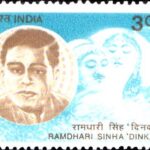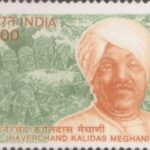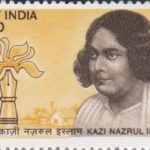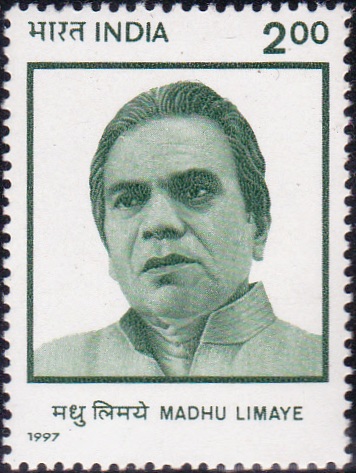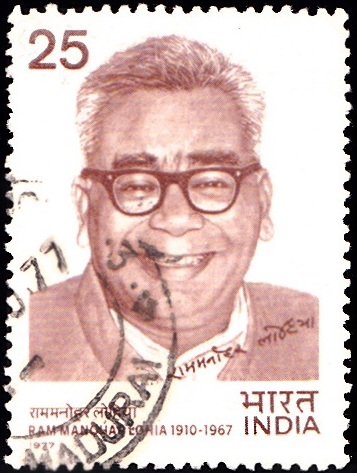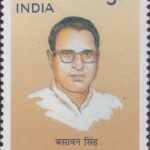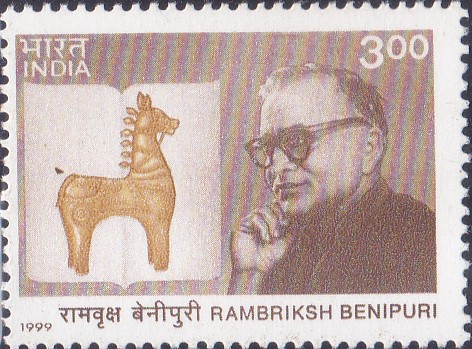
Rambriksh Benipuri
A commemorative postage stamp on Ramavriksha Benipuri, a Hindi writer and founder of Bihar Socialist Party [a part of the series ‘Linguistic Harmony of India‘] :

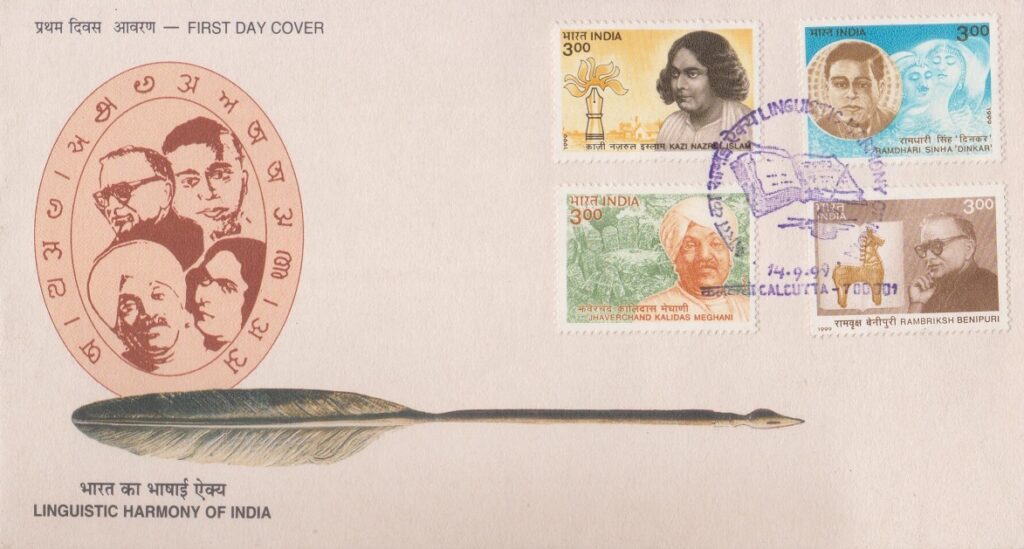 Issued by India
Issued by India
Issued on Sep 14, 1999
Issued for : Arising as it does from different regions and languages, the diversity of the ancient literary tradition of India is at once striking. These languages and literatures have been interacting with one another through the centuries resulting in their getting influenced by one another and acquiring a common, unmistakable identity that is typically Indian. The Department of Posts issues a set of four stamps on distinguished literary figures, whose works when viewed in totality, emphasise the linguistic harmony of the country.
The set of four stamps was released on 14th September, 1999, the 50th Anniversary of ‘Hindi Diwas’, which marks the adoption of Hindi as the Official Language of the Union. The day also celebrated all regional Indian languages and was symbolic of the linguistic harmony of the country.
Stamp Design : Concept of linguistic harmony in India is sought to be portrayed. The issue celebrates four distinguished literary figures of modern India: Kazi Nazrul Islam, Ramdhari Sinha ‘Dinkar’, Jhaverchand Kalidas Meghani and Rambriksh Benipuri. The stamp designs attempt symbolic recreation of their literary works.
Credits :
Stamp : Designs furnished by sponsors.
FDC & Cancellation : Alka Sharma
Type : Stamp, Mint Condition
Colour : Two Colour
Denomination : 300 Paise
Overall size : 3.91 x 2.90 cms.
Printing size : 3.55 x 2.54 cms.
Perforation : 13 x 13
Paper : Imported unwatermarked Adhesive Gravure Coated Stamp Paper in Sheets 50.8 x 53.5 cms.
Stamps Printed : 0.4 Million
Number per issue sheet : 35
Printing Process : Photogravure
Printer : India Security Press, Nashik
Name : Ramavriksha Benipuri
Born on Dec 23, 1899 at Benipur Village, Muzaffarpur, Bihar, British India
Died on 1968
About :
- Rambriksh Benipuri (1899-1968) hailed from Muzaffarpur district of Bihar, from a rural household. He took active part in the freedom movement in the 1920’s being a founder of The Bihar Socialist Party. Between 1930 and 1942, he was imprisoned on fourteen separate occasions, for a duration of seven years. The suffering he underwent sharpened and honed his creativity to bring forth literary masterpieces such as “Qaidi Ki Patni”, “Ambapali” and the famous “Maati Ke Moortein” which was honoured with the Sahitya Academy Award. A prolific journalist he edited periodicals: the Kisan, Tarun Bharat, Balak, Yuvak, Karmveer, Yogi, Himalaya, Chunnu-Munnu, Janta and Nai Dhara, and wrote plays, radio-features, novels, stories, word-sketches, reminiscences, travelogues, biographies etc. His works have been translated into many languages.
- Text : material supplied by sponsors.


